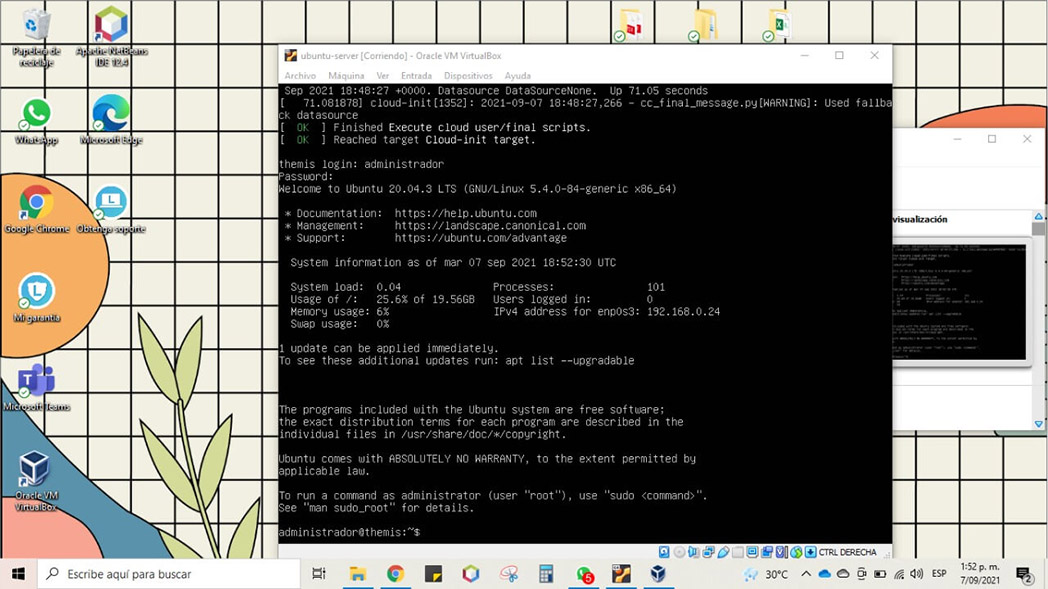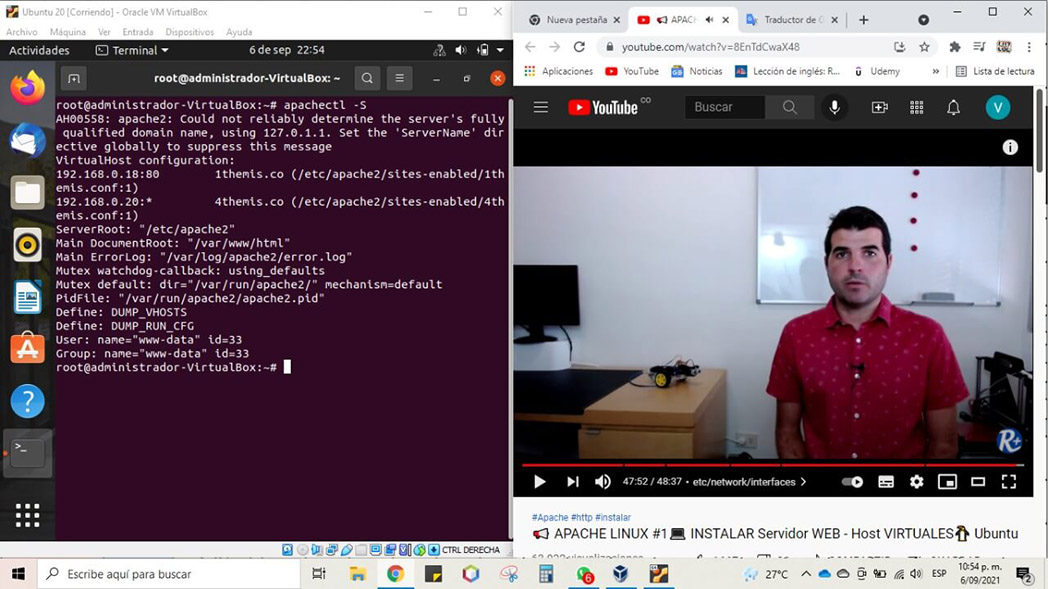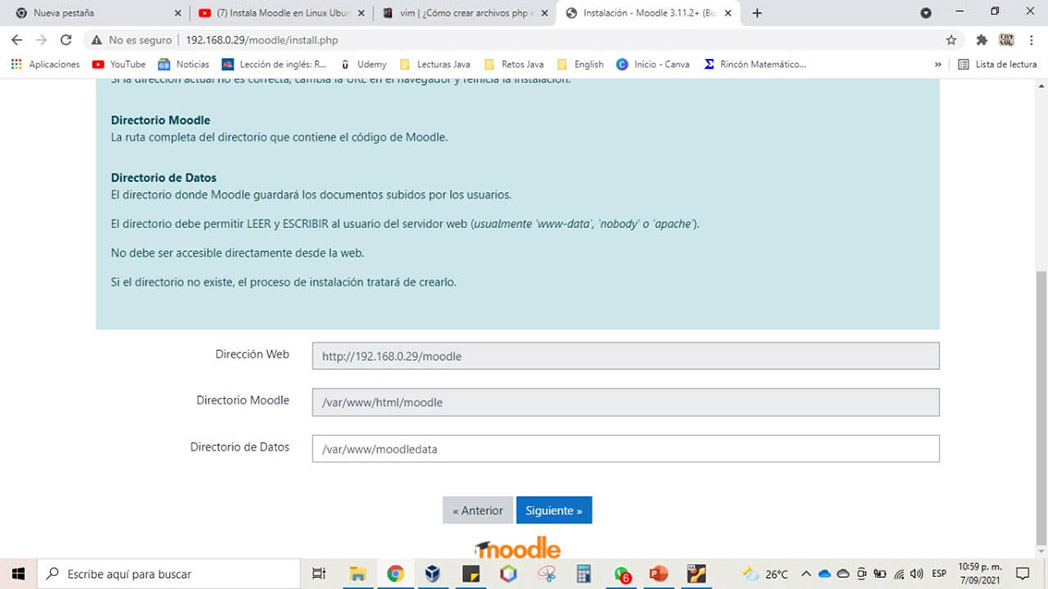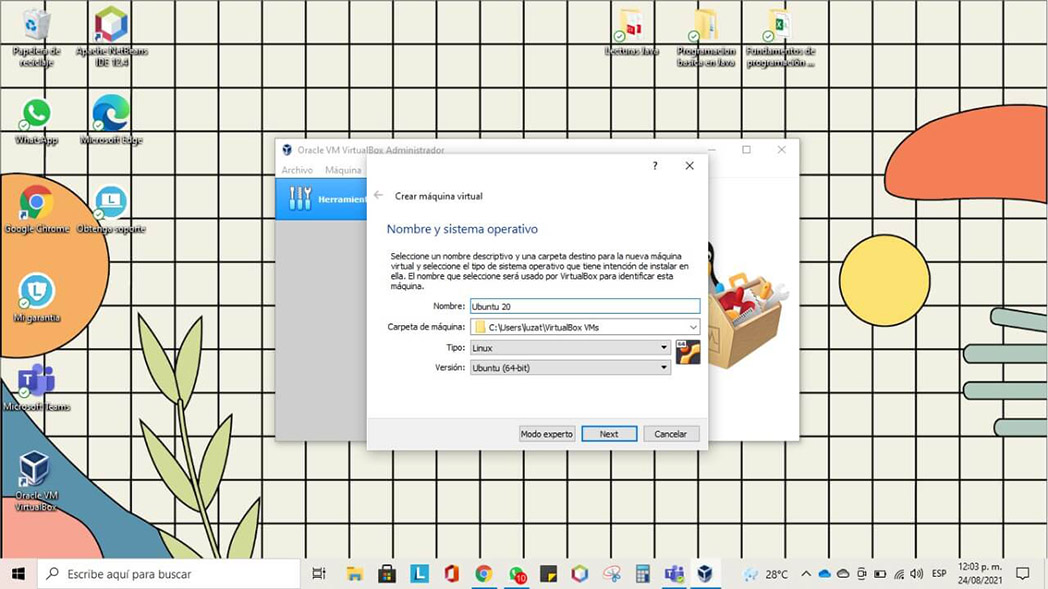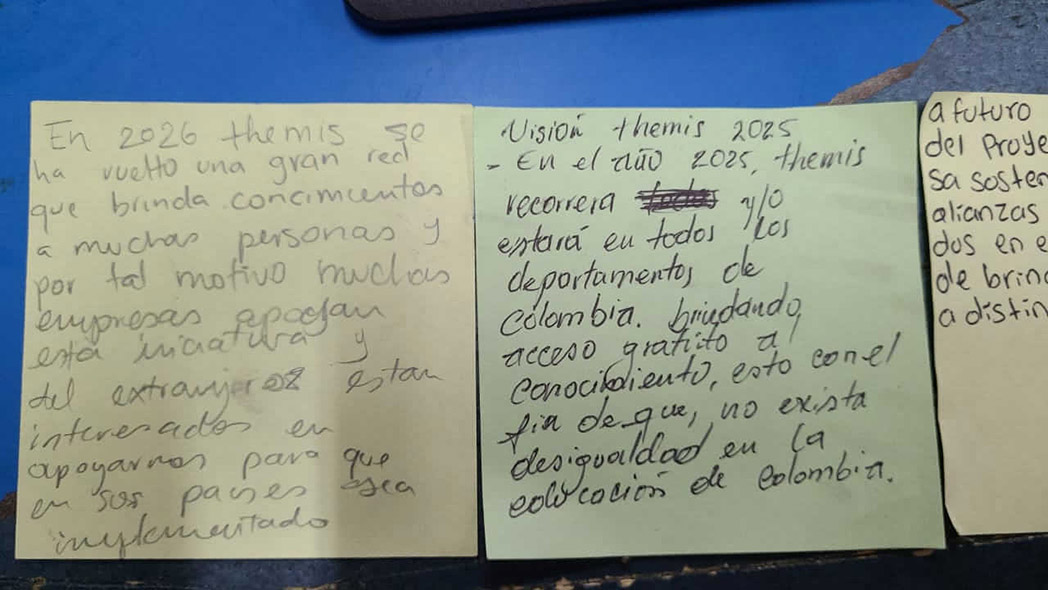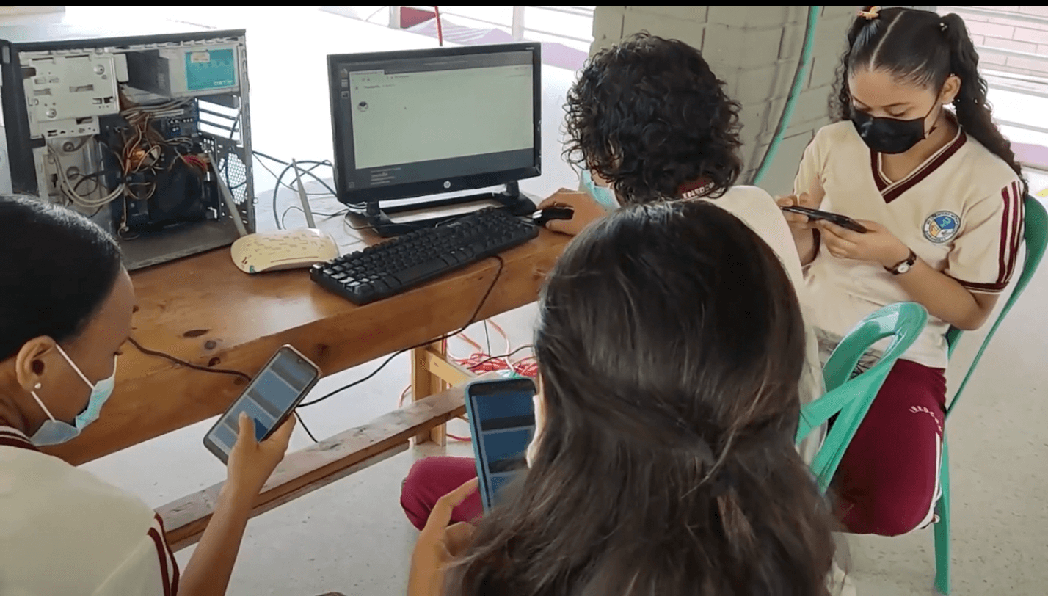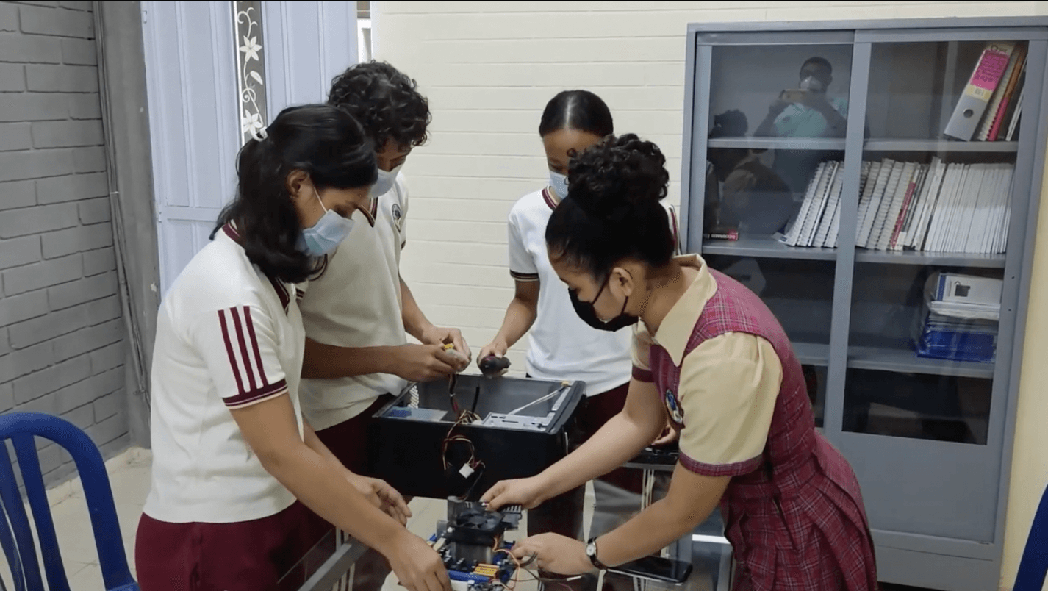Among the many impacts of the Covid-19 pandemic, student connectivity inequality was a deeply evident issue. And that was no different in Barranquilla, Colombia’s fourth largest city, with more than 2 million inhabitants. Directly affected by this issue, a group of 11th-grade students from the Institución Educativa Comunitaria Metropolitana de Barranquilla decided it was time to face it. With the support of the computer and School Investigation teacher, Alex González Jurado, three girls and a boy managed to transform the school into a wi-fi antenna, working within a radius of up to? 1km.
Alex, teacher for four years at the school, has been dedicated to transforming the school culture in which computer science is a subject focused on the use of softwares. In his classes he works with the STEM logic, looking for solutions to existing problems in the community. “My focus is on helping them understand and create technologies to solve everyday issues,” he explains. In addition to being responsible for all computer classes from 6th to 11th grade, he is the head of the School’s Research subject, in which, through projects, rational and scientific methods are approached as a way of understanding society.
By identifying that less than 35% of the students at the school (which serves about 1200 children and students from the lowest social strata) had access to broadband internet, the project group, during School Research classes, decided to overcome the challenge of offering free connectivity, transforming the school into a community internet provider; a big router, capable of spreading the signal beyond the institution’s walls. The connection combines a local air network and a city network, building a kind of intranet, in which, in addition to accessing the network, a space for exchanging information and synchronous tasks is made possible for teachers and students.
Initially using school computers and materials recovered from the community, with the support of an uncle of one of the students, the group managed to develop the first sketch (a kind of pre-prototype), affectionately christened Frankenstein, in allusion to the monster created by body parts of different people. “We were able to understand that we had a viable idea, but that we needed to get more resources to undertake it and solve the problem that we had encountered,” explains Alex. The teacher explains that from the ideation, it was possible to seek partners to qualify the proposal. In dialogue with the Department of Education of Barranquilla, we started sending emails to the management of Fundación Tecnoglass ESWindows, which collaborates with the development of social projects. “In one month we managed to buy antennas capable of updating the capabilities of our proposal,” he celebrates.
The project (in its new, more robust configuration) was named Themis. Its access to knowledge, honoring the Greek goddess of Justice, protector of the oppressed. “We baptized the initiative with the name of a Goddess, a woman, also highlighting the role of girls in an area where usually men are the majority,” celebrates the teacher.
All the construction and development of the proposal was shared among the students, with the teacher as a mediator agent in the process, but who always “entered together” to solve the challenges. “After I climbed on the roof of the school to install the antennas and recovered from the madness, I understood that we had a solution capable of changing the lives of many people,” he celebrates. With improvements, the antennas could reach a radius of 6 km, a project presented and defended by the group with the Department of Education. “Our idea is that from our prototype, they develop this strategy as a public policy, even enabling the creation of a network of schools connected to one another,” he explains.
The group, which worked actively during the Covid-19 pandemic, carried out many of the activities remotely. Students needed to study models, research types of antennas, develop original codes, and have an intense discussion about the paths they could follow. With Samsung, supporting the group to take on, a social business model was designed, which they continue to structure, even after graduation.
For Alex, the learning gains were numerous: from the technical knowledge acquired in computing and technology, such as the graphic design of prototypes and writing of programming codes, to the understanding of how connectivity affects youth unequally, in addition to a set of other curricular skills, linked to socio-emotional aspects, such as communication, systematization and organization skills. Him, who implements an assessment rubric in dialogue with each student individually, has noticed significant improvements. “It was exciting to see the evolution of each one, in dialogue with them; to go over what they have improved and how they identified those improvements,” he explains.
The group’s legacy has extended beyond the classroom and school walls for Alex. “I work in a 2m x 1.8m office and today I can’t get entire teams in here”, he jokes. The number of students interested in doing science has increased significantly, jumping from 2 to 40 projects to analyze. “From 6th to 11th-grade children, today I have many students wanting to transform, wanting to create and this is gratifying for a teacher”, he celebrates. According to the group’s mentor, the love and greed with which the student faced the challenges put the school on the city’s map. “Today they know that science is produced here,” he justifies.
For him, STEM knowledge combined with hands-on experience has immense transformative and engaging potential. “It makes sense. They take ownership of local issues and face them by mobilizing curriculum knowledge, integrating the community, and thinking critically,” he concludes.

